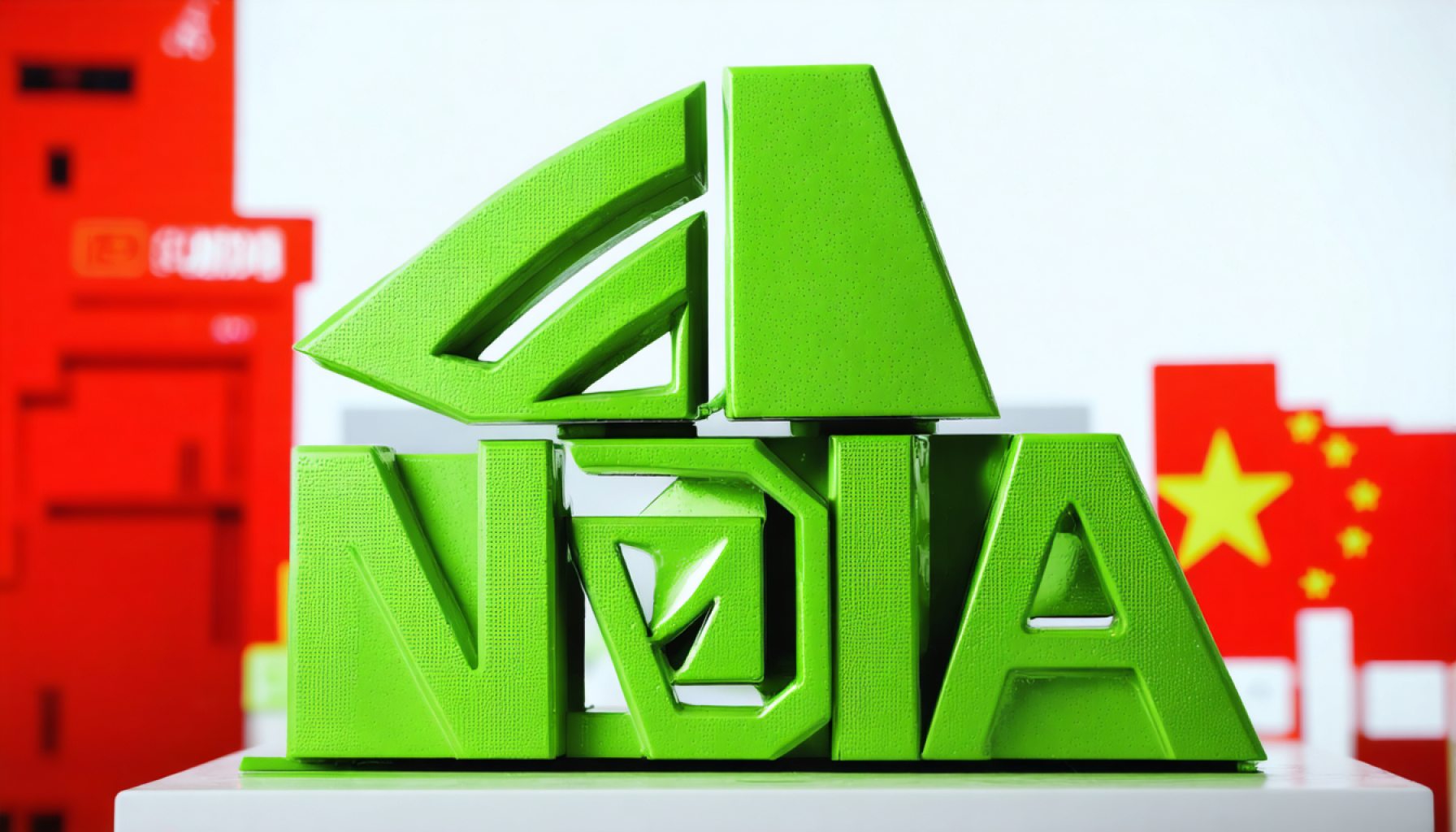- Nvidia’s CEO, Jensen Huang, visited Beijing amid U.S. export restrictions on its high-demand H20 AI chips, highlighting the importance of China in Nvidia’s global strategy.
- China contributed $17 billion to Nvidia’s revenue last year, representing 13% of its total earnings.
- New export controls could potentially reduce Nvidia’s revenue by $5.5 billion this quarter alone.
- Nvidia’s stock experienced a 7% decline due to rising U.S.-China trade tensions, which include tariffs up to 245%.
- Huang’s discussions with Chinese trade officials reflected a cautious yet optimistic outlook, emphasizing collaboration over conflict.
- Amid increasing geopolitical tensions, tech companies must balance innovation with regulatory compliance to remain resilient.
- The situation underscores the critical importance of adaptability in a rapidly changing global market.
Amidst the swirling complexities of global diplomacy and commerce, Nvidia’s CEO, Jensen Huang, made a bold touchdown in Beijing, underscoring a pivotal moment for the tech giant. His visit comes on the heels of stringent U.S. export regulations targeting Nvidia’s high-bandwidth H20 AI chips—a critical product increasingly in demand for advancements in artificial intelligence.
For Nvidia, China isn’t just a lucrative market; it’s a cornerstone player in its global strategy, contributing a staggering $17 billion to its revenue last year. This accounts for about 13% of the company’s worldwide earnings. However, new export controls threaten to sever this vital artery, with Nvidia warning investors of a potential $5.5 billion hit to its revenues this quarter alone.
Wall Street reacted swiftly, eyes fixated on Nvidia as its shares took a steep 7% dip. The ripples of the trade tensions between the U.S. and China are more pronounced than ever, affecting industries far and wide. With tariffs climbing to as high as 245%, businesses like Nvidia find themselves in a delicate dance, seeking to adhere to U.S. regulations while not losing footing in the colossal Chinese market.
In a notable exchange, Huang engaged with Chinese trade officials—a meeting steeped in both caution and optimism. He conveyed China’s indispensable role in the tech landscape, aspiring for a horizon where collaborative spirit prevails over constraints.
The stakes are high, and Nvidia’s situation encapsulates a broader dialogue unfolding across the tech sector. As geopolitical tensions rise, the imperative for companies is clear: navigate the corridors of international policy with precision, ensuring resilience amidst the tumult.
The scenario leaves us contemplating a critical lesson: in an era defined by digital rivalry and geopolitical power shifts, adaptability isn’t merely advantageous—it’s essential. Companies are finding themselves at the intersection of innovation and regulation, striving to remain agile in a world where market dynamics shift as briskly as the news cycles that cover them.
The Impact of U.S.-China Trade Tensions on Nvidia and the Global Tech Industry
Overview: Navigating the Complexity of U.S.-China Trade Relations
Nvidia’s CEO, Jensen Huang, recently made headlines with a strategic visit to Beijing amid rising U.S. export regulations targeting Nvidia’s high-bandwidth H20 AI chips. This visit is crucial for Nvidia, as China represents a significant portion of its revenue, contributing $17 billion and accounting for approximately 13% of the company’s global earnings. However, new U.S. export controls threaten to disrupt this key market, potentially causing a $5.5 billion revenue hit for Nvidia this quarter alone.
How-To Steps & Life Hacks: Navigating Export Regulations
1. Stay Informed: Regularly monitor announcements from both the U.S. Department of Commerce and China’s Ministry of Commerce to stay abreast of latest regulations.
2. Diversify Markets: As geopolitical tensions rise, companies should expand their market presence beyond high-risk regions to mitigate potential revenue losses.
3. Invest in Compliance: Strengthen internal compliance teams to ensure adherence to export regulations and avoid costly penalties.
Real-World Use Cases: Impact on AI Tech Development
Nvidia’s AI chips are pivotal for the development of artificial intelligence technologies in various industries including healthcare, automotive, and finance. Disruptions in chip supply could delay AI projects globally, underscoring the importance of stable international trade relations.
Market Forecasts & Industry Trends: The Future of AI Chip Demand
Despite current tensions, the demand for AI chips is anticipated to surge, driven by advancements in machine learning and data analytics. According to Grand View Research, the global AI chip market is projected to grow at a compound annual growth rate (CAGR) of 37.1% from 2021 to 2028.
Controversies & Limitations: The Challenge of Balancing Innovation and Regulation
The crux of the U.S.-China tech dispute lies in balancing national security concerns with the pursuit of technological advancement. Export controls, while protective, can hinder innovation by stifling the free exchange of technology and ideas across borders.
Pros & Cons Overview: Nvidia’s Strategic Positioning
– Pros:
– Strategic presence in China bolsters Nvidia’s global outreach.
– Leadership in AI chip technology provides a competitive edge.
– Cons:
– Vulnerability to U.S. regulatory changes.
– Dependency on the Chinese market poses financial risks.
Security & Sustainability: Measures for the Tech Industry
Security concerns have prompted regulators to introduce export controls. To address sustainability and security, firms should invest in robust cybersecurity measures and explore alternative materials and technologies that reduce dependency on geopolitically sensitive regions.
Insights & Predictions: Navigating Future Tensions
Industry experts predict that geopolitical tensions will continue to influence tech trade policies. Companies need strategic foresight to identify emerging markets and adapt to evolving regulatory landscapes.
Actionable Recommendations: Strategies for Resilience
1. Invest in R&D: Research alternative technologies that are less affected by geopolitical shifts.
2. Foster Collaborative Relationships: Build alliances with local firms in key markets to enhance operational resilience.
3. Develop Dual-Production Strategies: Establish facilities in multiple countries to safeguard against regional trade disruptions.
Quick Tips:
– Stay connected with trade experts and industry associations for insider insights.
– Leverage predictive analytics to anticipate market changes and align strategy accordingly.
– Engage with policymakers to advocate for balanced trade policies that support innovation.
For more insights on technology and market strategies, visit Nvidia.







